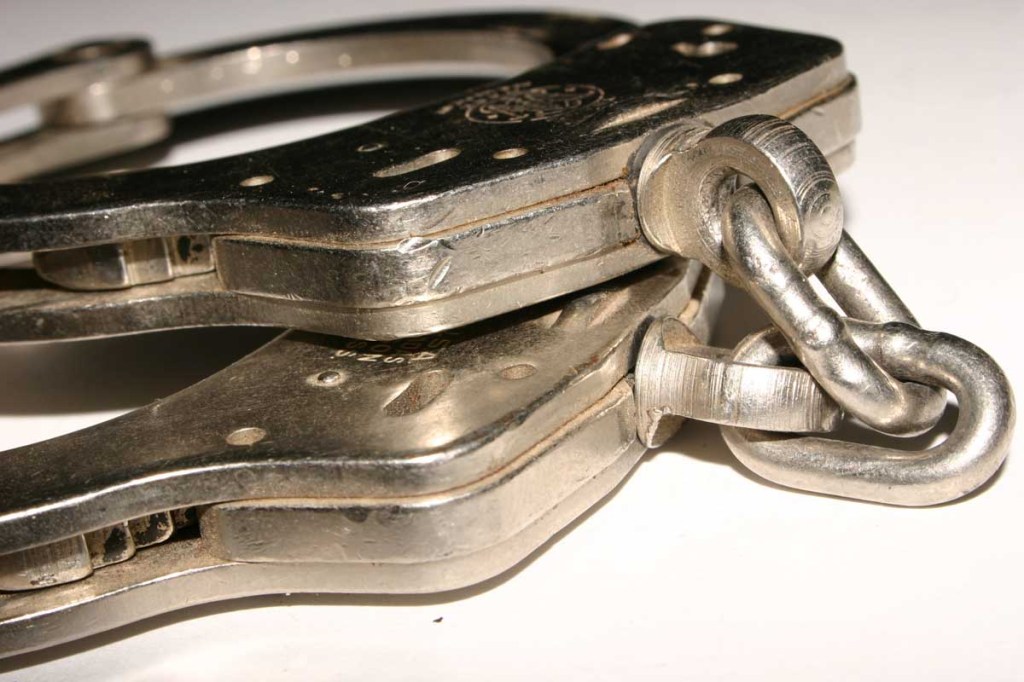Kentucky governor restores voting rights for some felons
Published 7:16 pm Tuesday, November 24, 2015

- Kentucky governor restores voting rights for some felons
FRANKFORT — Gov. Steve Beshear signed an executive order Tuesday which will make it much easier for an estimated 180,000 Kentuckians convicted of non-violent, non-sexual crimes to regain the right to vote or to hold office.
Trending
Kentucky is one of four states — the others are Florida, Iowa and Virginia — that do not automatically restore such rights for felons who have completed the terms of their sentences.
Before Tuesday, those seeking restoration of such rights in Kentucky had to file an application with the governor. Supporters of automatic restoration say ex-felons often don’t believe such applications will be successful and consequently don’t apply.
Because the loss of voting rights is spelled out in the state constitution, which also gives the governor pardon powers, Beshear’s order isn’t permanent — future governors could reverse the move by issuing their own executive order.
But incoming Republican Gov.-elect Matt Bevin said during the campaign he supports restoration of voting rights and even suggested last week he would consider doing something on his own if the legislature failed to act.
Beshear said his staff “communicated our plan to (Bevin’s) new general counsel” but did not indicate the response from Stephen Pitt.
In announcing his decision, Beshear cited research which shows that those ex-felons who regain their right to vote “are less likely to commit new crimes and to return to prison.”
Under terms of the order, those eligible to have their voting rights restored must meet three criteria: they must not have been convicted of a violent crime or a crime of sexual abuse; they must have completed all terms of their sentences, including any required restitution; and they must have no pending charges against them.
Now retired Democratic state Rep. Jesse Crenshaw of Lexington tried for 12 years to pass legislation which would have placed an amendment before voters to restore voting rights automatically but the measure never received a vote in the Republican controlled state Senate.
Crenshaw was on hand Tuesday and thanked Beshear for his action.
“If you ask people to work hard, pay taxes and to be good citizens, it is only fair that they should be able to do what others can do,” said Crenshaw. “If you cannot vote you cannot vote for the person who would govern you.”
Beshear, who leaves office on Dec. 7, said he would have preferred the legislature pass an amendment to make the restoration of rights permanent. He said he delayed action during the just-completed gubernatorial campaign because “I felt it might become a campaign issue for both candidates.”
Restoration of rights is different from a full pardon. Those affected by the executive order on voting rights, for instance, will not have their right to own firearms restored. Beshear is also considering as many as 8,000 requests for full pardons – typical for outgoing governors.
Under the process established by Beshear’s executive order, those currently behind bars will receive a certificate upon completion of their sentences which they can present to a county clerk when registering to vote.
For those who have already completed sentences and left the corrections system, they can apply for a certificate online at the Department of Corrections by calling 502-782-2248 or online at corrections.ky.gov. They can also pick up an application at any Probation and Parole Office. DOC will then determine if the applicant meets the three criteria for restoration, and if so, DOC will then mail the applicant a certificate.
Justice Cabinet Sec. J. Michael Brown said that process will take between 45 and 60 days to complete.
Ex-felons who do not qualify under the three criteria or perhaps have been unable to meet large financial restitution requirements may still apply to the governor for restoration of their civil and voting rights.
Several groups, from the ACLU of Kentucky to the AFL-CIO and Kentuckians for the Commonwealth hailed Beshear’s action.
Republican House Minority Leader, Jeff Hoover, R-Jamestown, supported Crenshaw’s bills and even co-sponsored the measure in Crenshaw’s final session, but Hoover doesn’t approve of restoring ex-felons’ rights by executive order.
Hoover noted he’s long supported allowing low-level, non-violent offenders to regain their voting rights, but said he has an issue with Beshear once again choosing “to usurp the authority of the Kentucky General Assembly through executive order.”
Hoover also questioned Beshear’s authority to take the action. But Beshear said the constitution gives the governor power to issue pardons and his authority is clear although acknowledging the executive order could be reversed by a future governor.
RONNIE ELLIS writes for CNHI News Service and is based in Frankfort. Reach him at rellis@cnhi.com. Follow CNHI News Service stories on Twitter at www.twitter.com/cnhifrankfort.


